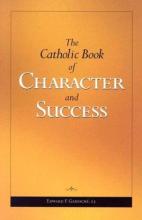We sometimes think of teenagers as immature, selfish and lacking in objectivity. Sean Covey believes they can learn to be otherwise. Using humorous story lines and a heavy sprinkling of anecdotes Covey has set forth a series of steps leading teens toward a more mature and compassionate view of life. While this is a secular book, it is written from a Christian perspective and "the Golden Rule" underlies most of the content.
The 267 pages are divided into twelve chapters covering the seven habits that "effective" teens display. The author doesn't go into detail regarding what "effective" means, but the reader understands it to be embracing life and living it in a positive, productive and compassionate manner. The seven habits include: being proactive (making a choice to respond positively rather then react negatively), beginning with the end in mind, putting first things first, thinking win-win, seek first to understand, then to be understood, synergize (teamwork), sharpen the saw (taking care of your mind, body, heart and soul. Each chapter begins with a brief introduction of the habit written in a style which grabs the reader. Many anecdotes and examples are then provided showing the effects of the habit in the real world. Finally the author provides a series of exercise to help the teen focus on developing that habit. The exercises are clever and would be effective if the teen carried them out.
This is an excellent book and one which I'll happily pass on to my children with a few pages removed. The author does an outstanding job of explaining how self actions effect mood, performance and one's environment. He encourages teens to be competitive with themselves and avoid comparison. He challenges them to develop internal control that will allow them to act rather then react to life. While Covey doesn't suggest that the internal control should be God centered, he presents the material in such a way that a religious teen would naturally understand that God would be at the center of self discipline.
Parents should be aware of a few comments in the book that deal with sensitive issues. One brief anecdote concerns a girl who was sexually abused as a child, and a few times slang is used for obscene gestures. Page 78 covers the topic "What about Sex" and the section "Caring For Your Heart" beginning on page 228 discusses "Sex and Relationships" and includes a 50 item listing titled "You're not ready to have sex if...." The list would be good for a secular teen but would not be suitable for Catholic children. These pages are easily removed from the book. The section "Caring For Your Soul" is general in nature and not in opposition to any Catholic teaching or practice.
In order for the book to be fully appreciated, teens reading it should have experience in social situations outside the home. Many of the anecdotes take place at school but would be understood by teens who have been in any type of group situation. This book is best suited for children 14 years and older. Older Catholic teens would benefit from reading How To Live Nobly and Well (reviewed above) by Edward Garesche, S.J. which touches on similar subjects from a Catholic perspective.

